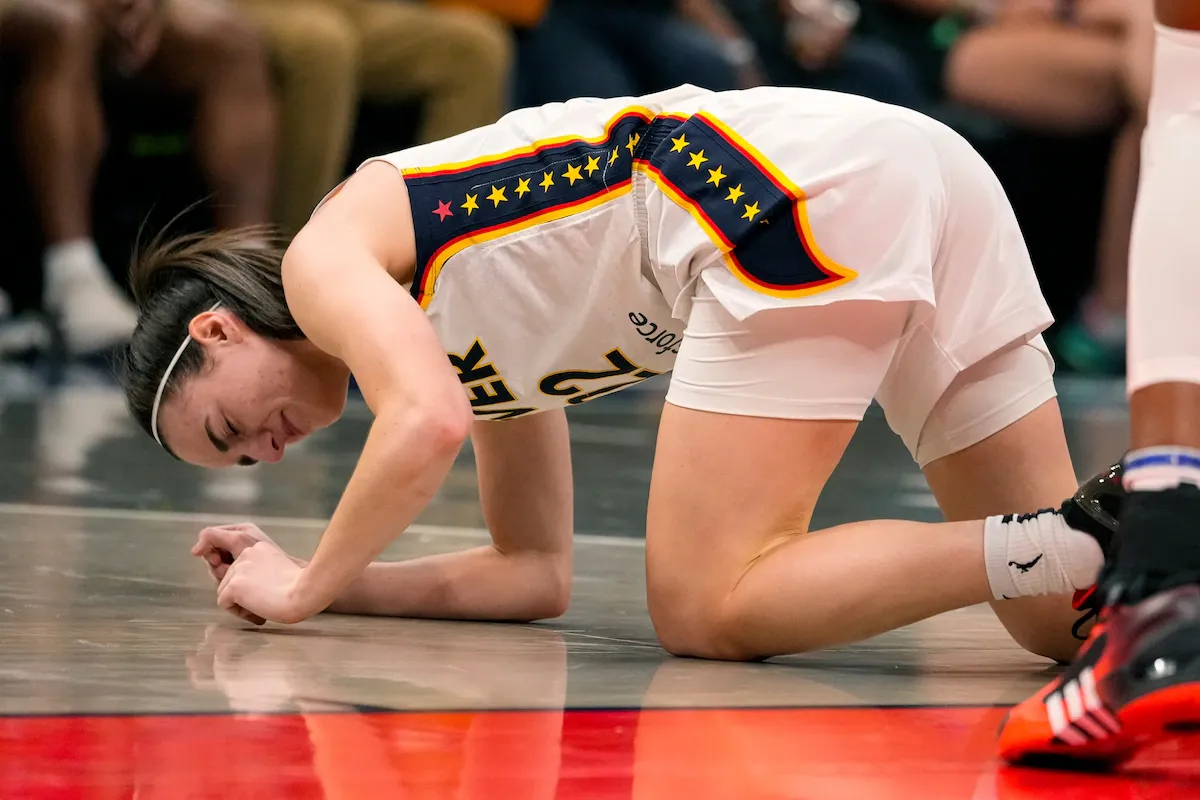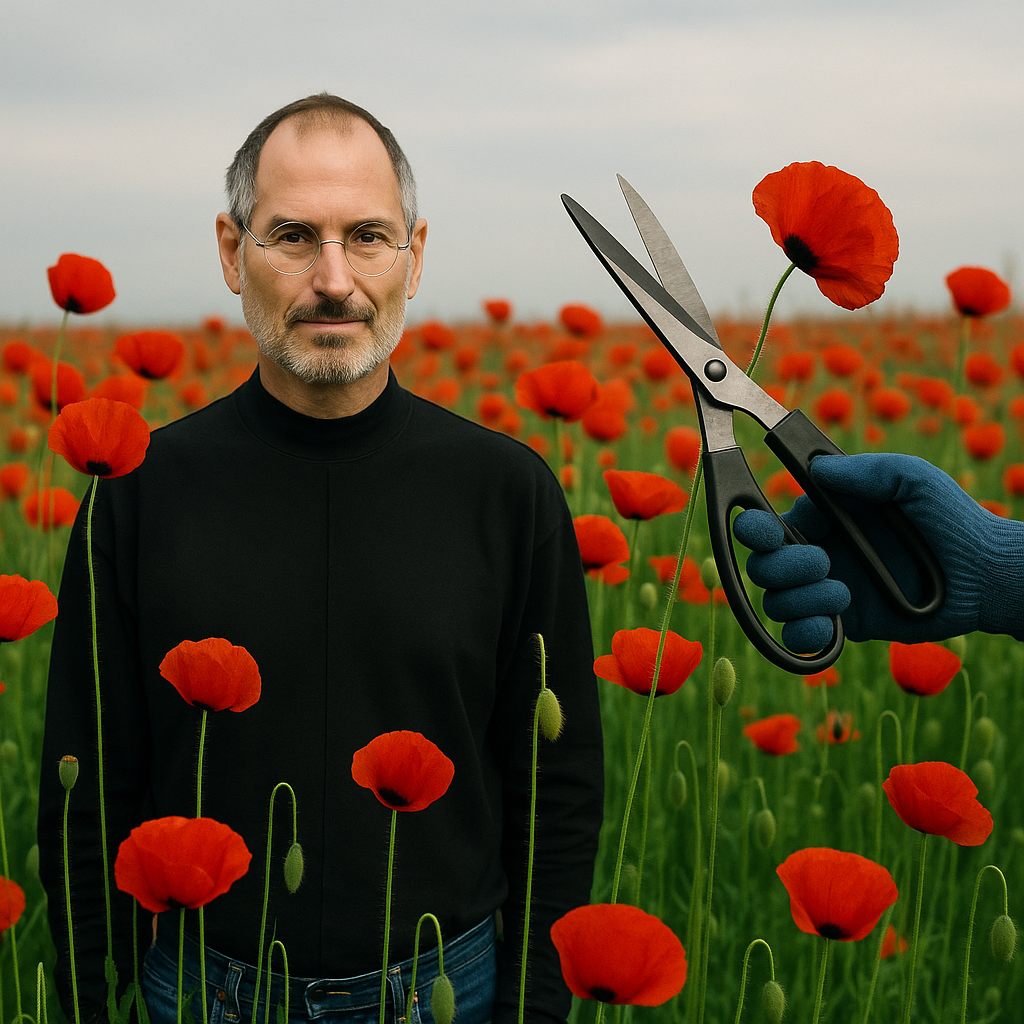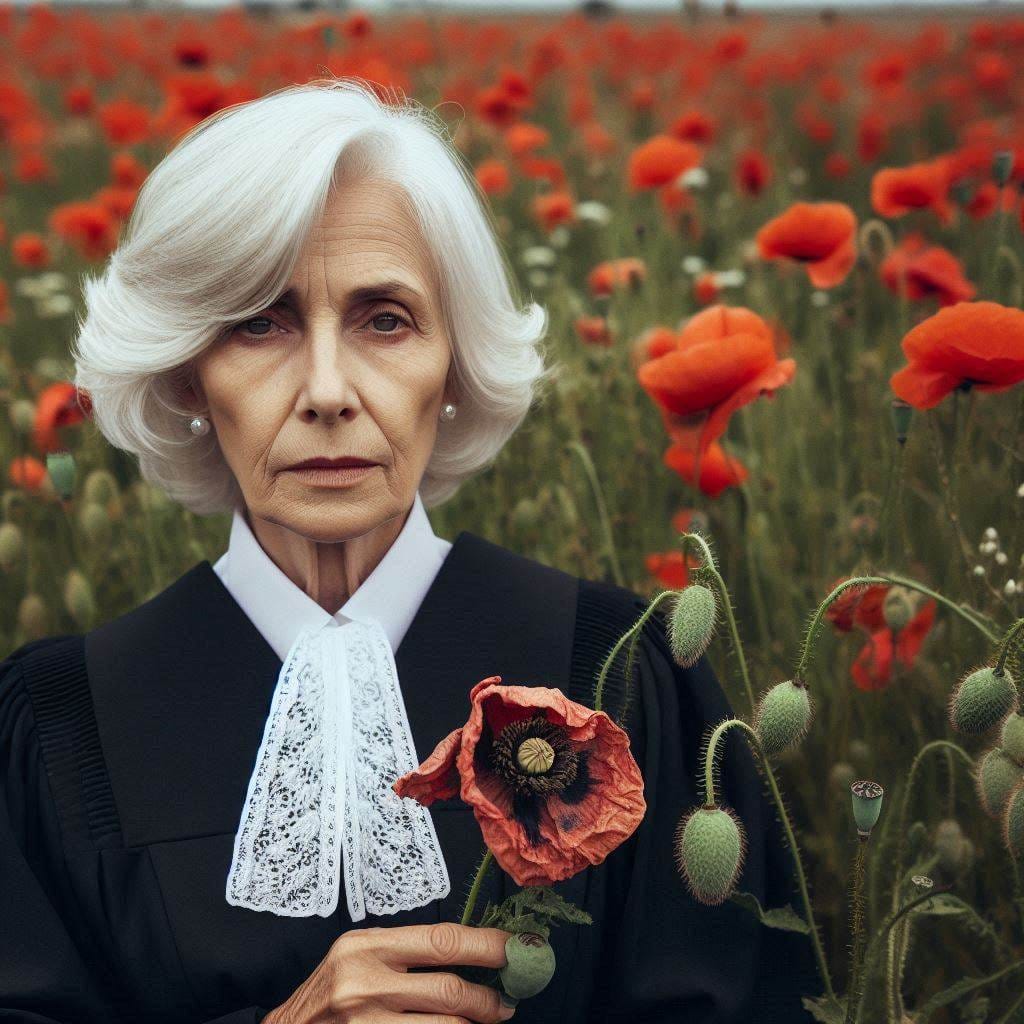Is Caitlin Clark a Victim of the Tall Poppy Syndrome?

Some are born great, some achieve greatness, and some have greatness thrust upon them. William Shakespeare
I started my last blog Homero Gómez González - Victim of the Tall Poppy Syndrome with a quote from MLK that begins "Not everybody can be famous, but everybody can be great...... " It seems Caitlin Clark is already famous but the Women's National Basketball Association (WNBA) is trying to determine if she will be great.
Tall Poppy Syndrome (Artificial Intelligence & The Tall Poppy Syndrome) is a phenomenon where people of high status, achievement, or wealth are resented, attacked, cut down, or criticized because they are considered to be "too big for their boots" or "uppity". This term is commonly used in Australia, New Zealand, and the United Kingdom, but TPS can also refer to similar attitudes in other cultures or societies. The idea behind tall poppy syndrome is that people who stand out are seen as a threat to the group and that they should be brought down to the level of the average member. This can manifest in different ways, such as gossip, bullying, ostracism, envy, resentment, or sabotage. Some experts argue that tall poppy syndrome can be detrimental to a society's progress and innovation, as it discourages people from striving for excellence or taking risks.
Bullying (Gender as a Cutter in the Tall Poppy Syndrome) is a form of aggressive behavior where someone intentionally and repeatedly causes harm to another person, either physically, verbally, socially, or online. It often involves an imbalance of power, with the bully having more power or influence over the victim. Bullying can take many forms, including physical violence, name-calling, spreading rumors, exclusion, and cyberbullying. It can happen in various settings such as schools, workplaces, neighborhoods, or online platforms. The effects of bullying can be severe, leading to emotional distress, low self-esteem, depression, anxiety, and in extreme cases, self-harm or suicide.
Bullying and TPS are often confused especially in the workplace. The hierarchy with its imbalance of power and potential for repetition makes bullying more common in the workplace than TPS. Bullier and cutter have commonalities of low self-esteem and bad envy. The bona fide peer-to-peer TPS occurs when similars are vying for the same position.
Envy occurs when a person lacks another's superior quality, achievement, or possession and either desires it or wishes the others lack it. Some even state that the envier not only wished the envied lacked the given trait but also wished their happiness was eradicated. Envy is coveting what one does not have and involves two parties (seeThe Tall Poppy Syndrome - The Joy of Cutting Others Down).
Jealous people are concerned about losing something or someone they have or have already lost. Three people are involved such as a love triangle. Jealousy has its dark side and can be a cutter in TPS. Jealousy is losing something one already has and involves three people.
Hazing refers to initiating new members into a group through rituals, challenges, or tasks ranging from benign to severe and harmful. The hazing tradition is ancient and can be traced to early military and educational institutions.
Hazing can be traced back to ancient Greece, as part of the initiation into certain military units and philosophical schools. In ancient Rome, young men undergoing military training often experienced similar rituals. During the Middle Ages, European universities adopted initiation practices for new students. These rituals involved tasks and pranks designed to test the newcomers’ resilience and loyalty.
In the 18th and 19th centuries, hazing was prevalent in military academies worldwide. These practices were intended to build camaraderie and discipline among soldiers but often led to severe physical and psychological harm.
The rise of collegiate fraternities and sororities in the United States during the 19th century brought hazing into higher education. These organizations adopted elaborate initiation rituals, some of which involved physical endurance tests, humiliation, and other forms of hazing.
Hazing in sports teams (high school, college, and professional) is common, with new team members often subjected to initiation rites that can involve physical tasks and abuses, consumption of large amounts of alcohol, or public humiliation.
Schadenfreude is a German term that refers to the experience of pleasure or joy that is derived from the misfortune, suffering, or failure of others.
Women's National Basketball Association (WNBA) was officially founded on April 24, 1996, as the women's counterpart to the Men's National Basketball Association (NBA). The NBA provided substantial financial and operational support and continues to subsidize the WNBA, helping to cover operational costs and promote the league.
Historically, the WNBA has struggled with profitability. The league has often operated at a loss, with the NBA providing financial support. The annual revenue is estimated to be around $60 million. The average salary is approximately $120,000, with top players earning more through marketing deals and international play. In contrast, the NBA is close to a $76 billion deal with networks over 11 years.
The league's first season began in 1997 with eight teams: Charlotte Sting, Cleveland Rockers, Houston Comets, New York Liberty, Los Angeles Sparks, Phoenix Mercury, Sacramento Monarchs, and Utah Starzz.
The league expanded rapidly, adding several new teams in the early 2000s, including the Minnesota Lynx, Miami Sol, Indiana Fever, and Seattle Storm. However, some teams incurred financial difficulties causing the Cleveland Rockers, Miami Sol, and Portland Fire to fold. The league stabilized with 13 teams.
The WNBA has fostered an environment of inclusivity and acceptance, which is reflected in its diverse player base and the league's commitment to social justice and equity. The 2020 season was dedicated to the Black Lives Matter movement. The WNBA is also known for being one of the most inclusive and supportive professional sports leagues for LGBTQ+ athletes. Several players have publicly come out as lesbian, gay, or bisexual, and the league has celebrated Pride Month with various initiatives and events.
Peter Press Maravich (Pistol Pete) was born on June 22, 1947. Maravich's father, Press Maravich, was a former professional basketball player and coach, who influenced Pete's early interest in basketball.
Pete attended Louisiana State University (1966 - 1970) and played under his father, who was the head coach. He became known for his flamboyant playing style, including behind-the-back passes, no-look assists, and long-range shooting.
Maravich only played college basketball for three years (seasons) since freshmen were not allowed to play varsity basketball at the time. He set numerous NCAA scoring records, including the highest career points total (3,667) and the highest career scoring average (44.2 points per game). He was a three-time consensus All-American and 1970 Naismith College Player of the Year.
Pete was selected 3rd overall by the Atlanta Hawks in the 1970 NBA Draft.
Caitlin Clark was born on January 22, 2002, in Des Moines, Iowa to Brent, a Divison III college basketball player, and Anne (Nizzi) Clark. Anne's father was a former football coach and a school administrator at Dowling Catholic High School in West Des Moines. Caitlin grew up in West Des Moines sandwiched between two athletic brothers. She began playing basketball at age five and competed in the boys' recreation league since there were no girls' leagues for her age group.
By age 13, she was playing several years ahead of her age group in girls' leagues. During the sixth grade, she joined All Iowa Attack, an Amateur Athletic Union (AAU) basketball program based in Ames, Iowa, and continued until graduating from high school. She guided All Iowa Attack to the Nike Elite Youth Basketball League championship towards the end of her sophomore year, scoring 23 points in a 64–61 final victory over the Cal Storm.
Clark played varsity basketball for Dowling Catholic High School (an athletic powerhouse especially in men's football) in West Des Moines for four years. She never was on a state championship team but lost in the finals once.
Her records are too numerous to mention but some include the fourth-most points (2,547) and the sixth-most three-pointers (283) in Iowa five-on-five history; Iowa Gatorade Player of the Year; Des Moines Register All-Iowa Athlete of the Year; Iowa Miss Basketball; IPSWA Class 5A All-State first-team. Clark was selected to compete in the McDonald's All-American Game and the Jordan Brand Classic but both were canceled due to Covid-19.
Clark attended the University of Iowa and became a starter in her freshman year. Her stats are so impressive I suggest you review them yourselves. Salient features include the consensus National Player of the Year for a second straight season; the all-time leader in 30+ point performances (59) in men’s and women’s college basketball over the last 25 seasons; the NCAA’s men’s and women’s all-time leading scorer surpassing LSU’s Pete Maravich (who only played three seasons) in her 130th career game.
Team sports and their stars are acknowledged for their championships and sometimes less about their accomplishments. Clark's teams: made the Sweet Sixteen (freshman); were upset by 10th-seeded Creighton in the second round (sophomore); lost to Louisiana State University in the national championship (junior); lost the national championship game for a second consecutive season. Ringless, she is still described as one of the greatest women's college basketball players.
Her senior year games became media juggernauts. Regular season games featuring her became the most-viewed women's basketball games of all time on six different TV networks. Clark's final three games in the 2024 NCAA tournament each broke the women's college basketball viewership with 18.9 million watching the national championship game. She is credited with popularizing women's college basketball known as the "Caitlin Clark effect."
Clark was selected as the first overall pick in the 2024 WNBA draft by the Indiana Fever which had the worst record last season (15–19) record. Fever is owned by Herb Simon who also owns the Fever's NBA counterpart, the Indiana Pacers.
The tall tree captures much wind.
Clark's rookie performance has been stellar but not her team's (3 wins). Salient early records include being the fastest rookie in WNBA history to record 100 points and 50 assists - in 8 games; recording 100 points, 50 rebounds, and 50 assists - in 10 games; recording 200 points and 50 assists - in 12 games. The media, the public, and especially the opposing players have noted her achievements.
A flagrant foul by Chennedy Carter during a game between the Chicago Sky and Fever went viral. Clark was waiting for an inbound pass when Carter knocked her to the floor. Some of Carter's bench including Angel Reese, her rookie nemesis, could be seen celebrating (schadenfreude). Social media went bonkers. Every sports outlet seemed to have an opinion including NBA commissioner Adam Silver.
Shortly after that the Women's Olympic Team was selected and Clark's name was not on the list. More media madness followed with claims that Clark was snubbed (cut down). She has now been listed as an alternate - a substitute if one of the selected players cannot attend.
Clark is the subject of bullying, hazing, and bad envy. I think she might even be a victim of TPS by WNBA officials who want everyone to be the same and protect veterans who have "paid their dues" without being hijacked by an untested rookie. Same for the Olympic Committee. Schadenfreude is sprinkled around for good measure, a common custom in sports when a favorite loses.
Clark has the "IT" factor. She also has TP traits of courage, fortitude, and gratitude. She displays great emotional intelligence, especially for her age. Her vengeance becomes a positive by improving herself not a negative by disparaging or harming others.
Disclaimer. I grew up in Waukee, Iowa, the first town west of West Des Moines, and attended Dowling High School. I too loved basketball and played varsity ball. Then our similarities disappeared. I scored 30 points in my career while she scored 30 points per game. Clark set the Class 5A state tournament single-game scoring record with 42 points in a 75–70 triple-overtime win over Waukee High School in the quarterfinals of her junior year. Creighton, my alma mater, upset Iowa in the second round of the NCAA tournament in her sophomore college year.
Tall Poppy Syndrome Newsletter
Join the newsletter to receive the latest updates in your inbox.



